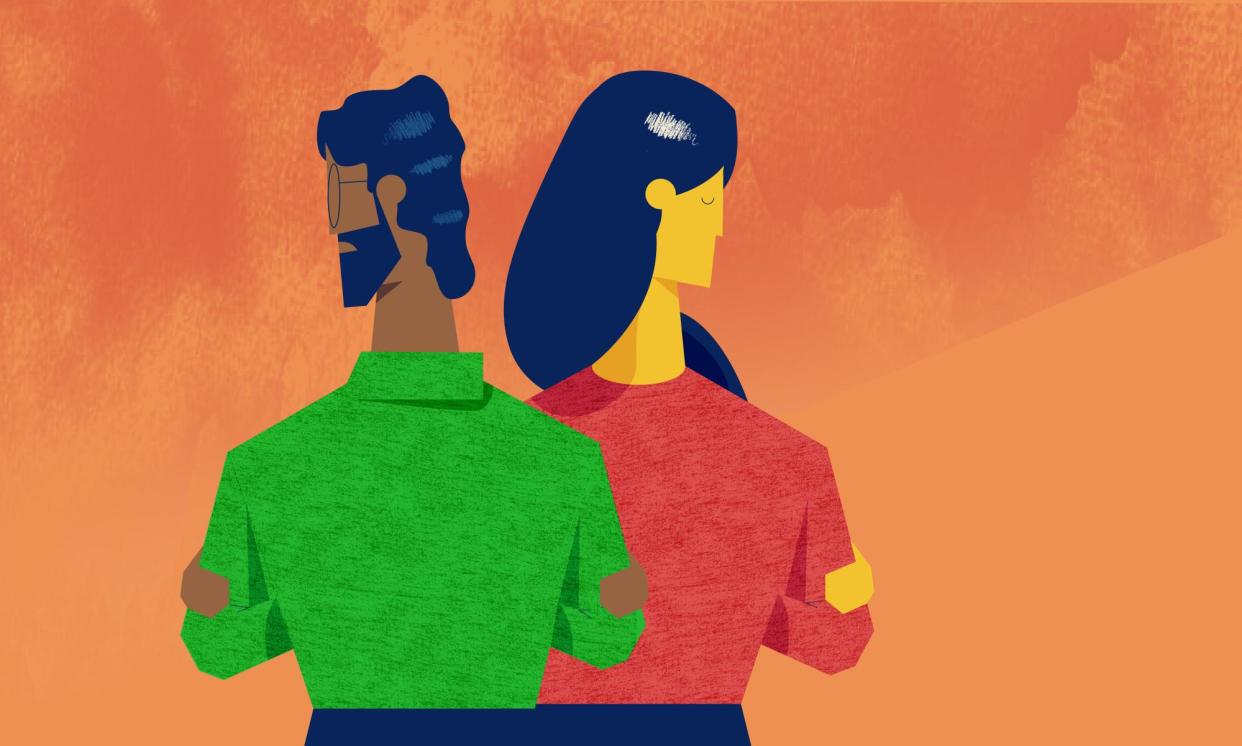My partner wants an open relationship, but is also jealous of my friendships with women

My partner and I have been in a relationship for many years, have a child together, and have had our ups and downs along the way.
Throughout our relationship I’ve been absolutely faithful and haven’t ever had the inclination to cheat. She had an affair a few years ago, which after a lot of pain and hurt on both sides became an open relationship situation, until it fizzled out.
Now, we’ve been monogamous for a long time, but due to her high sex drive she has been discussing the open relationship thing again, but has not yet acted on anything. I am not really interested in exploring this. Obviously she’s a grown adult, so I would not be in a position to stop her from doing what she feels she needs to do.
I keep my friend circles small, and only have a couple of close friends that I would be inclined to meet up with occasionally. Most of these are colleagues who happen to be female, and are very respectful of me and my family and are not the type to cross boundaries. My partner gets very jealous when I spend any time with them, and has always had trust issues with a fear that I may cheat on her, or that I am attracted to them more than her, which, as I reassure her regularly, is not true.
My closest friends have become aware of her discomfort, and have offered to meet up with both of us as a couple, but she is not interested in getting to know them, and would prefer if I cut ties completely.
I’ve researched both sides of the debate around platonic male and female friendships, and I am none the wiser as both sides have valid points. Am I wrong to cultivate these friendships further because it makes her uncomfortable, even though in my heart I know there is no basis to her concerns, or do we need to work on further building trust?
I was struck by the unfairness in your letter and I wondered where your expectations about relationships came from. There has to be some give and take at times, of course, but there also has to be some parity, otherwise what is it? It’s not a partnership. You tell me that your partner had an open relationship, wants to discuss it again, but gives you grief about platonic female friends?
I went to psychoanalytic psychotherapist Susanna Abse, who has decades of experience working with couples and the author of Tell Me the Truth About Love. Abse wondered what “you were asking? Is it to understand if this is an issue about different sexual drives and opinions on platonic friendships with the opposite sex, or something deeper about your relationship?”
You can’t stop what your partner does. None of us has control over what another person does. But you are allowed to express how you feel
We both concluded it was probably the latter. “Both of you,” observed Abse, “in different ways, are presenting each other with a threat. Your partner with her open relationship challenge and previous affair, you with your platonic relationships with your female colleagues. So you both feel, or are being stimulated to feel, jealous. And alongside that a bit unwanted or not enough.”
Of course you can’t stop what your partner does. None of us has control over what another person does. But you are allowed to express how you feel and if you think something crosses a boundary then that needs to be discussed and negotiated. If it can’t be, that doesn’t bode well because relationships are less about sex and platonic friends than effective communication.
Abse wondered if you’d “really recovered from the trust that was broken by her affair, and what effect it’s had on you and your sex life?”
I feel you are both pushing each other until one of you says ‘stop, enough’. You also both seem quite insecure,which you may need to work on, and not seek relentlessly from the other.
Abse and I both concluded that yes, you both need to work further on building trust, not least you because have a child together and so you owe it to them and yourselves. You may need to seek couple counselling (tavistockrelationships.org). I think if you could work out what’s not being said here you’ve got a good chance of fixing it.
• Every week, Annalisa Barbieri addresses a personal problem sent in by a reader. If you would like advice from Annalisa, please send your problem to ask.annalisa@theguardian.com. Annalisa regrets she cannot enter into personal correspondence. Submissions are subject to our terms and conditions.
• Comments on this piece are premoderated to ensure the discussion remains on the topics raised by the article. Please be aware that there may be a short delay in comments appearing on the site.
• The latest series of Annalisa’s podcast is available here.


